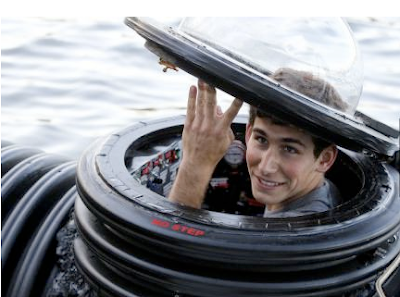Today we continue reporting from the SGS Vanguard. It's mission is to
survey the Kepler 62 system for the future
arrival of Fleet Station Farpoint. This story is your continuing introduction to the
new Farpoint Universe. We have much to do as we explore and secure this
system.
Farpoint Station is currently in the imagineering phase. Construction
of the station will begin in a few months at the Renaissance Shipyards.
The station's modules will be carried to Kepler 62e by stardrive
carriers and built in orbit of its final home. It is an exciting,
dangerous time. We are frontiersman. We are far, far from home.
Mr. W.
Farpoint. Installment 2
Read Installment 1
To be continued.....Report FiledSGS VanguardKepler 62eMy position as a Troubadour reporter has taken me many places far and wide. This year I'm assigned to the SGS Vanguard to cover their survey of the Kepler 62 system for next year's arrival of Farpoint Station. Few reporters are granted the unconditional access given to me onboard a SpaceGuard Ship. This is because the Government desires to inspire pioneering individuals and families to volunteer as settlers in soon to be established colonies deep in the Outlands. These Colonies will put a human footprint far outside the safety of the Treaty Zone. The government expects these new Outland Colonies will draw Olympian attention. The Genetically Enhanced Humans (Genies) will respond in kind, if they haven't already done so - and many believe they have. Olympian Genies will move to build their own stations and colonies. Conflicts are sure to follow, which is why the Farpoint Station is being installed at Kepler 62e, the home of the first Commonwealth Colony outside the Treaty Zone. The SGS Vanguard and Voyager will be assigned to the Kepler Colony to provide additional protection. The Vanguard is at location, the Voyager is still over one year out.Captain Villano called just before I went to supper, inviting me to tour the ship's bridge the following morning. I left my studio cabin with Pad in hand at 0900 sharp. The Crew of the Vanguard are generally cordial. They know I'm a reporter, which makes some of them uneasy. They know the importance of their mission, and don't want to be seen by me doing or saying anything which might make SpaceGuard look unprofessional. So, I usually get the polite "Good Morning" if I say it first. If not, I get the half smile or the casual nod tossed in my direction.The Vanguard's hallways are well lit with indirect lighting. The walls are modular, made of panels which can easily be removed by pressing two recessed buttons in the top corners. Every ten yards or so is a flashscreen portal, giving the user access to the Vanguard's intranet. The floor is made of slightly cushioned rubber which provides a certain 'bounce' in the step. The ship's Gravplates are beneath the flooring. Artificial gravity is one of several inventions the Commonwealth stole from the Genies - all taken from a captured Olympian ship which failed to self destruct during the first months of the Galactic War.I approached the Lift. The doors failed to open, meaning it was engaged."Destination?" the computer spoke."Bridge." I replied."Authorization?" the computer queried. The computer recognized my face but not my clearance to go to the bridge. I turned to the Flashscreen next to the Lift door. I tapped the black screen. The Intranet menu appeared. I tapped "Voice"."Working?" the computer spoke."I want to speak the the bridge." A moment passed. The screen changed showing the face of one of the bridge officers."Yes?" she questioned."Captain Villano wanted to see me on the bridge this morning.""Standby," She tapped her screen, the image froze. A moment passed. "You're good to come up," she smiled, the screen dissolved to the ship menu. I turned back to the door."Destination?" the computer spoke."Bridge," I replied."Stand by. Your wait will be 34 seconds." I waited 34 seconds; the lift door opened. I stood to the side to let two crew members exit before I entered. "Prepare," the computer spoke, warning me to take hold of the railing. The car moved sideways for several seconds before stopping to pick up another passenger, a young medical intern. We gave each other the standard courteous transit smile. The Lift rose several decks and stopped again to let the intern off. The doors closed, the lift continued vertically to the top of the ship. "Deck One, Bridge," the computer spoke. The doors opened.
I try to keep them short - I know the attention spans I'm working with :)
Space and Science News
13 Unlucky Inventors Killed by Their Own Inventions
NASA's Ion Engine
Ion propulsion engines harness magnetic fields to create thrust, instead of depending on chemical explosions the way chemically fueled engines do. NASA engineers are developing such an engine for the agency's plans to bring an asteroid into Earth's orbit and then send astronauts there to study it. NASA Administrator Charles Bolden went to see a prototype engine yesterday at the Jet Propulsion Laboratory in Southern California, the Associated Press reported. Read More
➤ Rewriting Memories: http://is.gd/JYlapy
➤ Limb Regeneration: http://is.gd/RndLTv
➤ 3D Printed Breathing Device: http://is.gd/cWhG0s
➤ Quantum Link: http://is.gd/u8QIBk
➤ Alzheimer's Molecular Trigger: http://is.gd/ujEg6u
➤ Universe's Light: http://is.gd/4tywM8
A Smile
Get it? If not, email me for the answer (spacecamputah@gmail.com).
The Imaginarium
On today's menu, Ordinary stew made Extraordinary.
His mother said she's be right back, she only had to pick up a few things (like we all haven't been in this situation before).
This one has experience with the law.
Designer Shoes
Gamers of the World, Unite!
Email me if you need need help :)
The Only Candle a Real Man Would Ever Buy :)
One creative idea for a Eiffel Tower roller coaster
Not exactly the recipe to success....
Now that's art I can appreciate.
One way to keep cool














































No comments:
Post a Comment